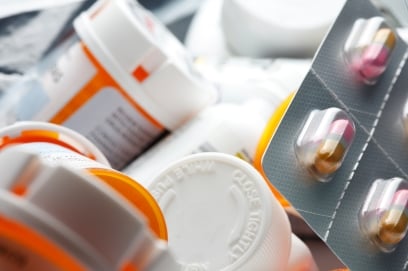NDP MP Don Davies says regulating hard drugs should be considered to avoid ‘unnecessary death, destruction, and crime’

After meeting with pundits, volunteers, and victims who want to stem the ongoing opioid crisis – several of whom linked illegal drug use with self-harm, childhood trauma, abuse, and fatalities – NDP MP and Opposition health critic Don Davies said that it’s time to discuss legal distribution of drugs.
“What I heard was a lot of people talking about the need to discuss finding safe, cheap ways to distribute drugs in a legal form,” he said to the Georgia Straight, adding that a dialogue is necessary to avoid “unnecessary death, destruction, and crime that so clearly associated with the current model [prohibition].”
Noting that he is not in a position to speak for the entire federal NDP, Davies said he thinks it is time for a national conversation about regulating hard drugs, similar to how the federal government and regional health authorities have control over prescription narcotics such as methadone and OxyContin.
“When we drive people underground to buy drugs in unsafe circumstances… it leads to a host of problems that I saw very clearly [from the people I met],” he said.
The dialogue Davies is in favor of involves legalization rather than decriminalization. Decriminalization would only lift sanctions for possessing and distributing drugs, potentially leaving supply in the hands of untrustworthy dealers. Legalization, on the other hand, would allow government to intervene and regulate drug sales and distribution.
Speaking for Federal Health Minister Jane Philpott, Andrew MacKendrick offered no position on the idea, though he did not exclude it as a possible solution. “We’re not going to shut down ideas if they may help address the crisis,” he said.
According to MacKendrick, Health Canada recently announced it would invest $5 billion over 10 years in mental health care, which would in part be used to deal with the overdose epidemic. BC Health Minister Terry Lake has also heard discussions about legalization occurring at the federal level.
“When I was at the opioid summit in Ottawa [on November 18], people would bring this up,” Lake told the Straight in December. “The federal government, really, has the policy pen on the way we look at controlled substances. A lot of people are saying we should be like some countries in Europe and just legalize all drugs and make sure there is a safe supply. But I’m not sure. I don’t know enough.”
Acknowledging the need to invest in prevention and treatment, Davies noted that some will nevertheless continue to use opioids. “When you see people obtaining dangerous drugs off the street that are killing them, I think it would be really interesting—and a timely discussion to have—to see if we can distribute those drugs in the established pharmaceutical system,” he said.
Related stories:
Study shows increased number of hospital visits for opioid overdoses
Could pot combat opioid addictions?
“What I heard was a lot of people talking about the need to discuss finding safe, cheap ways to distribute drugs in a legal form,” he said to the Georgia Straight, adding that a dialogue is necessary to avoid “unnecessary death, destruction, and crime that so clearly associated with the current model [prohibition].”
Noting that he is not in a position to speak for the entire federal NDP, Davies said he thinks it is time for a national conversation about regulating hard drugs, similar to how the federal government and regional health authorities have control over prescription narcotics such as methadone and OxyContin.
“When we drive people underground to buy drugs in unsafe circumstances… it leads to a host of problems that I saw very clearly [from the people I met],” he said.
The dialogue Davies is in favor of involves legalization rather than decriminalization. Decriminalization would only lift sanctions for possessing and distributing drugs, potentially leaving supply in the hands of untrustworthy dealers. Legalization, on the other hand, would allow government to intervene and regulate drug sales and distribution.
Speaking for Federal Health Minister Jane Philpott, Andrew MacKendrick offered no position on the idea, though he did not exclude it as a possible solution. “We’re not going to shut down ideas if they may help address the crisis,” he said.
According to MacKendrick, Health Canada recently announced it would invest $5 billion over 10 years in mental health care, which would in part be used to deal with the overdose epidemic. BC Health Minister Terry Lake has also heard discussions about legalization occurring at the federal level.
“When I was at the opioid summit in Ottawa [on November 18], people would bring this up,” Lake told the Straight in December. “The federal government, really, has the policy pen on the way we look at controlled substances. A lot of people are saying we should be like some countries in Europe and just legalize all drugs and make sure there is a safe supply. But I’m not sure. I don’t know enough.”
Acknowledging the need to invest in prevention and treatment, Davies noted that some will nevertheless continue to use opioids. “When you see people obtaining dangerous drugs off the street that are killing them, I think it would be really interesting—and a timely discussion to have—to see if we can distribute those drugs in the established pharmaceutical system,” he said.
Related stories:
Study shows increased number of hospital visits for opioid overdoses
Could pot combat opioid addictions?



